Women fought side by side to save pits from closure
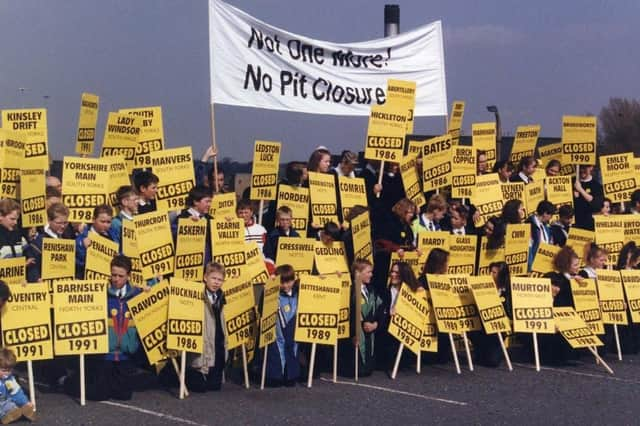

Sheffield Women Against Pit Closures was part of a national campaign to save 31 pits from closure by John Major's Tory government, a move that would eventually lead to the loss of the entire deep-mined coal industry so vital to South Yorkshire.
The announcement by trade secretary Michael Heseltine in October 1992, with the loss of 31,000 jobs, sparked a national campaign with mass demonstrations and the occupation of Markham Main Colliery offices by Ann Scargill and four other members of Women Against Pit Closures.
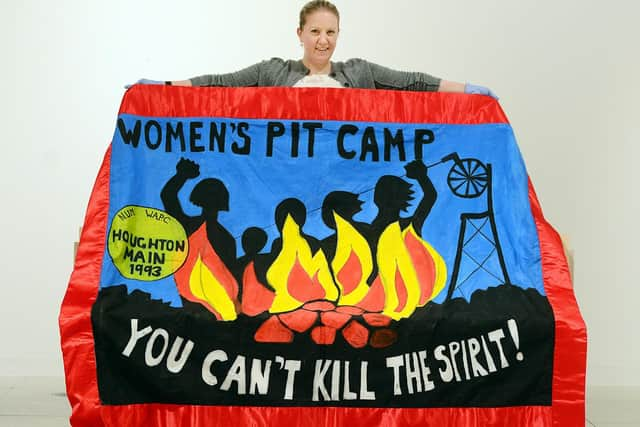

Advertisement
Hide AdAdvertisement
Hide AdThe Sheffield group ran a lively campaign, including setting up a women's pit camp at Houghton Main colliery near Barnsley. A caravan set up outside the pit was occupied 24 hours a day for six months.
Other campaign activities included taking off from the site in a hot air balloon and a protest involving local children, who each held a placard with the name of one of the threatened pits on them.Â
The Star ran a feature in January 1993 on two of the campaigners from contrasting backgrounds, miner's wife Marilyn Haddington, aged 41 and a mum and housewife, and unemployed graduate Juliet Portchmouth, who was aged 27 and single and had no direct links to mining communities.
Marilyn, of Longley, first became politically active around the 1984-5 miners' strike and Juliet, who lived in Pitsmoor, was involved with women's peace campaigns.
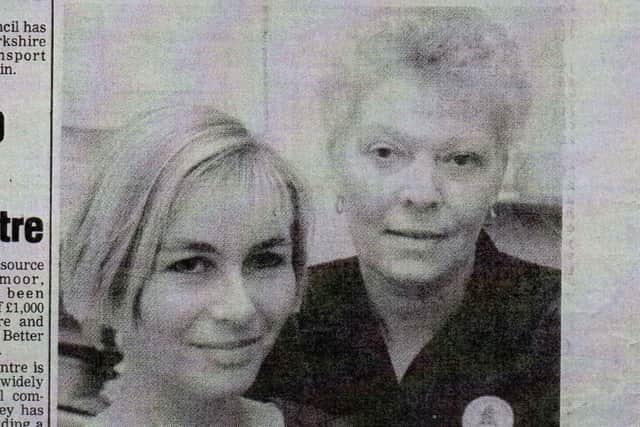

Advertisement
Hide AdAdvertisement
Hide AdThe pair met up recently to look back at the campaign and how it affected them and what they think about it now.
Marilyn remembered her first visit to the pit camp: 'I went on the Sunday with my friend Margaret Martin, we stopped overnight and I came back Monday to see to the kids. I worked in the week and just used to go at the weekends.
'The men always used to come and make sure that we were alright.'
The brazier outside the caravan was always a focal point, with miners and other supporters stopping by for a cup of tea and a chat. Group members used to give out information about the campaign an the solidarity activities that were taking place.
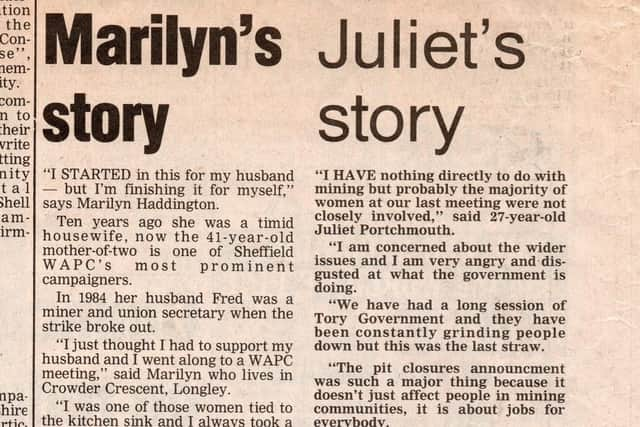

Advertisement
Hide AdAdvertisement
Hide AdMarilyn recalled: 'Meeting everybody and different people from different walks of life, we were amazed. I loved every minute of it. Looking back, in that interview I said I'm not going to go back to where I were but you do. I'm still involved in little bits though, helping with this book.'
She was amazed by how much she had changed in 25 years: 'I cringed when I read that I was tied to the kitchen sink!'
Marilyn's husband, Fred, was a miner at Treeton pit during the strike, and had worked at Orgreave, and was also a union activist. By the time the 1992 pit crisis hit, he had already been made redundant and had become a postal worker.
She said: 'We'd all been through what they were going through and I thought we've got to do something. You've got to do your bit and try and help them.Â
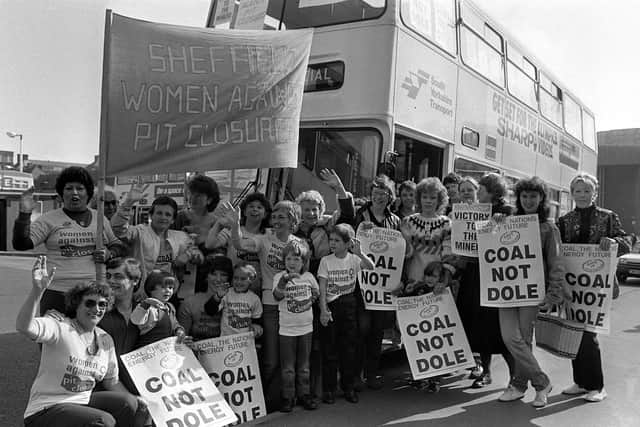

Advertisement
Hide AdAdvertisement
Hide Ad'That's what Sheffield Women Against Pit Closures were doing. Although I was working part time in a bar, I wanted to do my bit.'
The couple still live in Longley and Fred took ill health retirement from the post office 10 years ago.
Marilyn, now 67, said that Fred looks back on his years as a miner fondly. 'He says he'd go down the pit tomorrow. Pitmen are a different breed.'
Marilyn said the campaign had been worth it, even though the pits weren't saved: 'Every time yes and I'd do it again if I'd got to. It was worth fighting for and made people sit up and take notice'.'
Advertisement
Hide AdAdvertisement
Hide AdJuliet agreed: 'I think it was a good thing to have done. It was great to have been part of that political movement, to be involved.
'I know all the pits closed but I think, like Marilyn said, it did make people sit up and take notice.
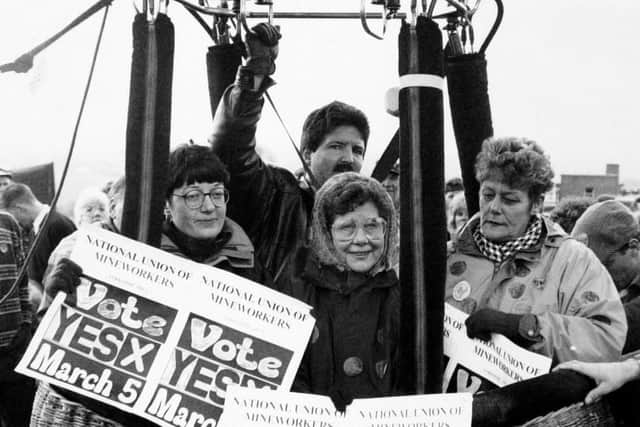

'It was a very high-profile campaign that was definitely worth doing. It was like being part of a piece of history.'
Juliet said why she got involved: 'It was a combination of being involved with a lot of protests about the Tory government at the time, being invoved in the women's peace movement, being involved in Greenham Common and stuff.'
Advertisement
Hide AdAdvertisement
Hide AdShe added: 'I didn't do any speaking at meetings. I didnlt think that was appropriate, it was much more appopriate for the women living in the communities to do.Â
'I went out to Houghton Main pit camp, which is what I remember mostly. I think it was set up to be be a publicity thing but it was definitely more than that.
'There were so many people involved, it was always really busy. We had a rota for people staying overnight and I stayed a couple of times.'
Juliet, who moved to Sheffield from Scotland in 1981, '‹'‹'‹'‹'‹'‹now lives in Shirecliffe with a houseful of cats and works at the Gardeners Rest pub in Neepsend.
Advertisement
Hide AdAdvertisement
Hide AdIt's a community-run pub and she also organises an art group there on Thursday mornings for adults with learning difficulties.
Ex-members of the group are writing a book about their experiences'‹'‹'‹, called You Can't Kill the Spirit.
Flis Callow and Caroline Poland are doing an illustrated talk as part of the Off the Shelf literary festival next Wednesday, October 10, at 7pm at theÂ
University of Sheffield Students' Union, Western Bank